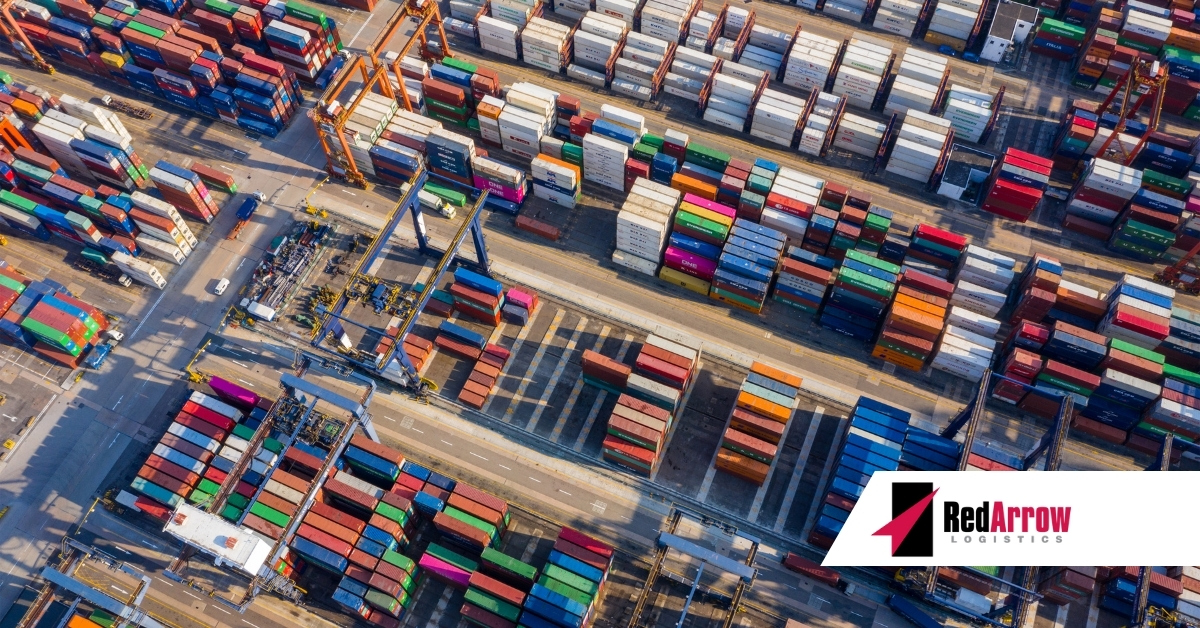The aftershocks of the pandemic are starting to be felt as the demand for goods, energy, labor, and transportation has increased globally. Supply chains simply cannot keep up with the relenting demand. As a result, major countries worldwide are feeling the strain on their supply chains.
United States
There are several logistics industry issues that the United States is currently being challenged by, particularly with the shortage of containers and backlog of ships waiting to unload at major U.S. ports. With the holiday season upon us, retailers are predicting shortages of goods as they are still trying to restock their inventories from the surge in e-commerce demand, and as a result, prices are increasing.
The labor shortage, particularly in retail and leisure, means that customers have seen temporary hours at stores as well as temporary closing of establishments because there are not enough workers to open.
Bottlenecks in the supply chain in the U.S. will most likely not improve for some time, or at least until the COVID-19 virus gets under control globally.
China
China is seeing its share of economic issues as well and is struggling to provide basic necessities to its residents. Investment banks such as Goldman Sachs have lowered their growth forecasts for the country in part due to electricity cuts that are causing idle factories and long delays at ports. Rationing electricity in some parts of the country is the only way to keep the power grid from shutting down completely which means some buildings have no water supply or elevators for hours every day.
As fuel prices were rising, power plants in China reduced their coal purchases to run on stock. Now, these plants are out of coal but cannot purchase more coal as the prices have surged, meaning shorter operating hours.
Germany
Inflation is hitting Germany hard. With a 20% rise in petrol prices and 5% in food-related items, the country is set to have the highest inflation rate in about 30 years. Growing demand and shortages in supplies have created a rise in prices. Inflation is predicted to increase to 5% by the end of the year, coupled with a lift in the VAT rate (which was temporarily lowered last year because of the pandemic), and German residents and businesses will be paying more for everyday goods as well as manufacturing items such as metal, wood, and semiconductors.
Like the U.S., Germany is also experiencing a labor shortage, but it has been longstanding, so the economy has been at a standstill with not enough workers in the health sector, IT, engineering, and skilled trades, and manufacturing. While the country is not calling it a ‘crisis’ yet, signs are pointing to harder times ahead.
Russia
As the world’s largest net oil and gas exporter, Russia does not have issues with energy prices but there are challenges with food shortages. Since banning western imports of meat, vegetables, and fruit in 2014, the country is experiencing shortages and the inability to get certain food items. Food inflation is at a rate of 7%, which the government is trying to keep quiet.
Russia is also experiencing a shortage of workers because of rising prices and their migrant crisis as many workers from Central Asia left during the COVID-19 outbreak.
United Kingdom
An outbreak over the summer forced hundreds of thousands of workers to self-isolate, which was a huge detriment to the economy. Businesses, manufacturing plants, and public services were forced to close because of a lack of employees and petrol shortages which mean people could not get to work.
The economy is 3.5% smaller than it was before the pandemic. All sectors have undergone a slowdown in activity with a lack of staffing and supplies. This is another country in which inflation is expected with a rise in gas bills.
Australia
The inability to get materials such as timber and steel is causing Australia’s construction industry to scramble to find supplies to build. Housing prices are increasing faster than they have in two decades. Timber, which comes from China and India, is held up because the containers cannot get to the ports. Higher shipping costs and wages will push inflation higher than expected. The Master Builders Australia group has suggested that the government plant an extra 250,000 trees a year to combat any timber shortages in the future.
With fewer migrant laborers, costs are going up even higher, with demand on the rise. The construction industry just cannot keep up.
Supply chain disruptions are creating major disturbances in these countries. With these six major economies being impacted, smaller economies will also start to feel the strain on their supply chains, which will result in a more global effect.
Your Trusted Partner
At Red Arrow Logistics, we provide expertise and white glove customer service with fast-growing, complex, and high-value supply chains. As the next-generation model of logistics companies, we offer tailored transportation and logistics solutions — from single shipments to complex over-dimensional and international orders.
Red Arrow offers the scale and scope of services including air, ocean, and ground transportation to meet the budget and schedule requirements of the largest and smallest companies alike. If we can be of assistance, please email us at info@redarrowlogistics.com or give us a call at 425-747-7914.





